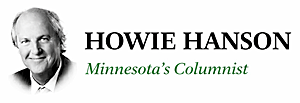Let’s get this out of the way up front: UnitedHealth Group is massive — in reach, revenue, and regulatory suspicion. When you’re Fortune 5 and touch everything from grandma’s Medicare plan to the back-end software in her doctor’s clinic, you’re bound to catch heat. And United has caught more than its fair share lately, from data breaches to antitrust chatter to the usual gripes about corporate medicine.
But scale isn’t always a villain — especially in healthcare, where fragmentation and chaos are the norm.
In fact, if you peel back the public angst and follow the infrastructure, UnitedHealth Group might quietly be holding the American healthcare system together better than most want to admit.
The Case for Vertical Power
Critics call it consolidation. The industry calls it vertical integration. Whatever your preferred term, UnitedHealth Group doesn’t just insure lives — it now increasingly manages care through its Optum division, owning clinics, staffing them with physicians, processing the claims, and running the analytics behind it all.
That’s not inherently sinister. In theory — and increasingly in practice — this model allows care to flow more efficiently, with fewer delays, tighter coordination, and less bureaucratic ping-pong between disconnected systems.
Take, for example, a diabetic patient under a UnitedHealth Medicare Advantage plan. Through Optum, her insurer already knows her lab history, primary care visits, medication adherence, ER visits, and social risk factors — and can intervene earlier, rather than waiting for a hospitalization.
It’s a vision of healthcare that feels more like Kaiser Permanente, only without the West Coast exclusivity or the closed-loop systems. United is doing it in Florida, Fargo, Fresno and everywhere in between — often behind the scenes.
Efficiency vs. Empathy
Of course, critics say UnitedHealth is more machine than medicine. That it uses algorithms to deny care, that it squeezes physicians, that it hides behind a thousand subsidiaries. But much of this is a byproduct of scale, not of malice.
United isn’t your neighborhood clinic — it’s a national platform trying to run healthcare at industrial size. Is it clunky at times? Sure. Are there valid complaints about prior authorization and transparency? Absolutely. But the system isn’t broken because of United — it’s simply big, complex, and under unrelenting pressure.
And to its credit, United isn’t sitting on its profits in some Minnetonka bunker. They’re reinvesting heavily in digital health platforms, rural access programs, value-based contracts, and community care hubs. The company’s reach is starting to mirror its rhetoric.
The Part You Don’t See on Cable News
Ask around — not just the folks filing lawsuits or waving protest signs — but the health systems quietly partnering with Optum for revenue cycle management, or the physicians choosing to sell their practices for financial stability. Or the state Medicaid officials who rely on United for enrollment infrastructure. Or the behavioral health patients finally getting access to virtual therapy through a United-backed program.
These stories rarely make headlines, but they make a difference — in rural counties, underserved cities, and overworked hospital systems alike.
The truth is, UnitedHealth Group has become the plumbing of modern American medicine. You don’t see it until it leaks — but when it’s working, you’re probably better off because of it.
Final Thought
Is UnitedHealth Group too big? Maybe. Are they running ahead of regulators and rewriting the rules of care delivery? Often. But are they the devil in scrubs some critics claim? Not by a long shot.
In a fractured system plagued by duplication, denial, and delay, United’s scale might just be the first draft of a national solution — messy, evolving, and deeply imperfect, but far more functional than we’re often willing to admit.
Because for all the chaos in healthcare, there’s still a real argument to be made for size, systems, and stability. And right now, UnitedHealth Group is making that argument — quietly, persistently, and everywhere.
Howie Hanson, editor & publisher of HowieHanson.com, has covered local healthcare since 1973. This column is the first in a series focusing on UnitedHealth Group's role in today's fractured healthcare system.



